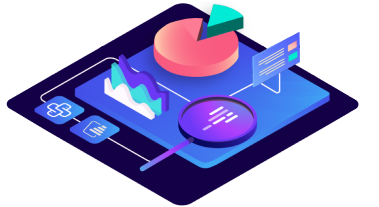Design principles for software development with object-oriented programming

With the training Python - Focus Object-Oriented Programming you deepen your Python knowledge and bring it to the next level.
You will learn the most important design principles and best practices of object-oriented programming, so that you can implement your software projects even faster and more efficiently.
The advanced training is designed for those who already have experience with Python and want to use the programming language effectively in a professional context.
In the first chapter you will look at defining functions in more detail and learn about default values, type hints, and assert statements. Afterwards, you can use functions even more effectively as tools for your projects. You will work with the concepts of list comprehension and dictionary comprehension to efficiently create lists and dictionaries. At the end of the chapter, you will learn how to adapt your code to the PEP8 industry standard by means of layout and structure.
In the second chapter, you will learn what OOP is, which programming principles are based on it, and which conclusions you can draw from it, using simple examples.
In the main part of the chapter, you will explore how classes and attributes are defined and used. You will use examples to examine instance methods, how they’re used and defined with method chaining. You‘ll learn what the self keyword is, as well as how to distinguish debugging from class definitions.
Finally, you will test your previous knowledge in an interactive interim project and repeat the exercises from the chapter.
In the third chapter, you will learn what inheritance and composition are and how to use these concepts in use cases. In addition to simple inheritance, you will also learn more advanced methods such as inheritance hierarchy and multiple inheritance.
In doing so, you‘ll practice deep inheritance methods to make data reusable from parent to child classes, to compensate for data loss.
Finally, you will learn the most important best practices for unit testing in order to detect errors in your code before your users find them.
In the fourth chapter, you will deal with more advanced concepts of object-oriented programming, which you will use in your daily work. You will study the difference between programs and modules and what role __main__ plays.
You will learn what decorators are and how to use property decorators optimally. You will look at static and class methods and what special methods and class representations you can use with __str__() and __repr__().
Based on this, you will learn about the possibilities offered by operator overloading as well as other important methods from the Python Standard Library and then apply what you have learned in a business-relevant interim project.
In the fifth chapter, you will demonstrate your knowledge in two larger projects that represent classic use cases of object-oriented programming.
In the first project, you‘ll build your own interface for a popular data science library that makes it possible to apply machine learning or data or text analytics methods.
The second project deals with programming your own blockchain, where you will learn more about the underlying concepts.
The demand for data experts is high. Around 4 million data experts will be needed in Europe by 2025. In Germany alone, 149,000 IT jobs are currently vacant. The demand for data and AI experts in particular continues to grow enormously.
But a decision for a data career is so much more than just a safe decision for the future! As a data expert, you deal with powerful, socially relevant topics, are a tech professional, and are communicative and creative at the same time. The profession is varied, can be combined with most other professions and offers an attractive salary. And most importantly, with us it can be learned unerringly!





StackFuel GmbH
Nostitzstrasse 20
10961 Berlin
info@stackfuel.com
030 / 544 533 420
Solutions
Company
Resources
Contact